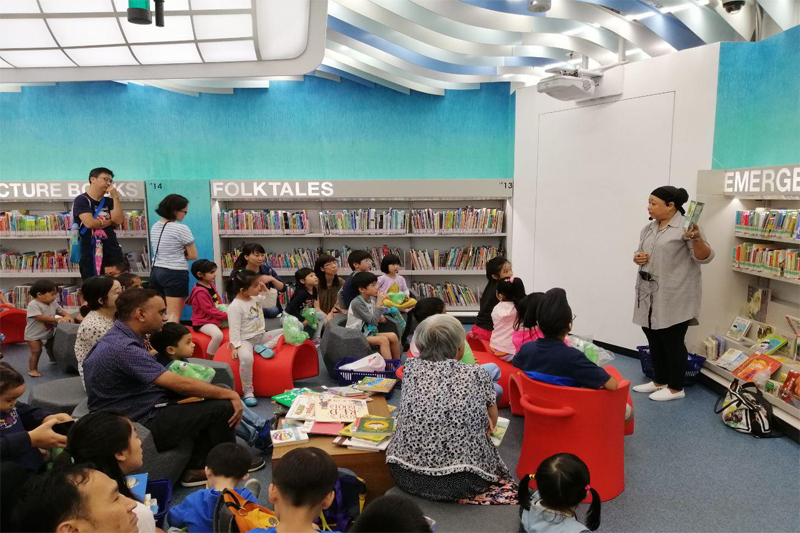
Rattles and pacifiers don’t make the cut for kids these days. In an era of smart phones, young and old are hooked to their devices. But what is often overlooked is the vulnerabilities users are unknowingly exposed to.
OpenGov Asia had an opportunity to interview Stephan Neumeier, Managing Director APAC Kaspersky Lab, and Vitaly Kamluk, Director of GReAT (Global Research and Analysis Team) APAC Kaspersky Lab. In our last chat with Stephan, he commented on the changing cybersecurity landscape in APAC. This time, we chat about how their company is engaging in cybersecurity education in both Singapore and across the region.
Making Cybersecurity Education a Priority
According to their analysis, APAC has a mixed level of cybersecurity awareness level. Higher income countries like Singapore and Australia, are more mature. Necessary legislation and cybersecurity bills are in place to protect government organisations, enterprises and the average citizen. However, Stephan notes that emerging economies in the region do not necessarily demonstrate equal levels of expertise in charting a cybersecurity strategy.
A generally younger demographic and type of device used and adds to the complexity. A young populous, tech savvy nation multiplies the spread of infection in terms of speed and quantity.
Stephan shared, “Millennials have access to fast internet connection – 4G…In these emerging countries, the use of Android is more popular because it is cheaper than an iOS device. If these iOS devices are not secured, because it is an open system, then they can be very vulnerable. This younger generation also has a lack of cybersecurity awareness. The combination of a lack of cybersecurity awareness with the lack of the right security infrastructure, leads to huge vulnerabilities for these types of countries.”
Although the younger generation in these countries might be more educated, Stephan warns against assuming a link to cybersecurity awareness. The link is tenuous. Hence, governments and educators must actively seek new avenues to raise awareness.
“Millennials should be educated when it comes to cybersecurity. However, the level of awareness presently is not at where it should be,” explained Stephan.
The Singapore government too is not quick to assume. Across the various levels of education, educators are creating opportunities for students to learn about cyberthreats.
Kaspersky Lab has been working closely with many universities and polytechnics in Singapore on various projects.
At the secondary level, Catholic High School and Anderson Secondary School have engaged Kaspersky Lab to conduct career and cyber wellness talks for their students. Vitaly also shared that a secondary school in Singapore had approached Kaspersky Lan to verify their school’s cybersecurity program. At first glance, he was surprised at how comprehensive was. Later, he learnt that they had engaged another cybersecurity vendor to develop the program but had wanted to crosscheck.
Nonetheless, Vitaly is supportive of such initiatives. He said, “That’s the way to go – to approach private sector vendors to help with the [cybersecurity] curriculum.”
Additionally, with all the free study material available online, there is no reason why educators are hindered from teaching students good cyber hygiene practices.
Cybersecurity is No Child’s Play
The latest demographic they are zooming in on, however, are those who are still in primary school.
In a recent initiative, the company launched a storybook initiative to educate primary school children and their families on internet safety. The book is titled ‘Kasper, Sky and the Green Bear’.
According to Stephan, it is not too extreme to educate children at such a tender age. Since many already own their personal mobile device, they could easy fall prey to malware scams or offer personal information in return for free games or music. Thus, Stephan opines, “If you start at secondary school, you’ve lost them already.”
What’s more, if children are well informed about cyberthreats, they can be evangelists in their homes on good cyber hygiene habits. Elders who might not be aware of online scams could learn a thing or two from the young ones. This revolutionises how education is traditionally thought about.
For more tech savvy parents, this is what Stephan advises, “You should educate on a basic level – on what kinds of threats are out there, what they should click, what they should not click. If they’re using a smart phone already, what should they do with that…Really just raising awareness that it’s dangerous out there. When they’re surfing the web and they do not have a basic understanding of certain behaviours and threats, it could be dangerous for them and the family.”
“Awareness needs to be raised at the student level, but we are also raising awareness among the parents…Most of the parents are completely helpless. They know they’re kids are online, they have their smart phones already, and are alone with computers in their rooms, yet they don’t know what they are doing.”
He advised, “Parents need to know what kind of language they should use when they talk to their kids, in order to raise awareness. But they also need to know what kinds of technologies are available out there to help them.”


















